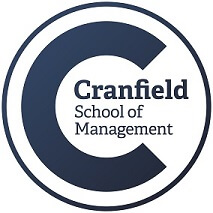- ...
Postgraduate Studentships - Search for funding opportunities.

‘Thinking like a start-up’ was once considered a radical practice, to be pursued only by young, inexperienced companies seeking to have a disruptive influence in the marketplace. But today even long-standing businesses are encouraging a start-up mindset, crediting it with making them more agile and better positioned to make the most of opportunities to maximise their success.

For Rebecca Harper, the entrepreneurial mindset nurtured during her studies at Cranfield was the best preparation for a high-level career in a FTSE 100 company.
Consumer goods giant Unilever turned over more than $56 billion in 2018. The company adopts a start-up approach to launching new brands, allowing it to emulate the agility of companies a fraction of its size.
Starting a new role in such a dynamic environment could be daunting for many, but Rebecca found her Master’s in Management and Entrepreneurship at Cranfield had given her a good head start.
Speaking to Business Because, she said: “Here at Unilever, we deploy a lean and agile start-up mentality, and that’s to make sure we execute an advantage over our competitors. This mindset was truly learned on the MSc in Management and Entrepreneurship, which is why I believe it’s such a unique course.”
Rebecca joined the course at Cranfield with ideas of launching her own start-up business, but quickly realised the idea she had would not work in practice. Despite this, the programme’s introduction to thinking like an entrepreneur has proved invaluable for her role at Unilever, where she works as a performance digital data lead.
Key to a start-up mindset is the creation of a continuous feedback loop on a new offering. Companies produce the minimum viable product and refine its core features so the most effective outcome is reached by the most effective process.
As well as helping start-ups get themselves off the ground, this process helps large corporates like Unilever manage new products on tight budgets.
Rebecca says the Cranfield programme encourages students to apply this mentality from day one.
“The Master’s will always provide you with the knowledge to thrive in a fast-paced environment with integrity and confidence, whether that’s in a corporate or a start-up,” she explains. “If you’re ambitious and want to develop creative thinking, the quality of teaching and the diversity of the culture gives you the foundation to succeed.”
Even with an entrepreneurial mindset, it would be understandable if an early-career professional like Rebecca joining a large corporation felt anonymous and was reluctant to take ownership of their team and projects. But Rebecca says the personal journey she underwent at Cranfield meant this has not been a problem for her at Unilever.
“When I started my course, I had the skillset of a manager, but when I left I had the skillset of a leader,” she explained. “From a personal perspective, I learned about what I was capable of, how resilient I was and how I could use my inner drive to be proactive rather than reactive.”
Rebecca credits the proactive attitude that Cranfield encourages in its students as instrumental in setting her and her peers up for success, whether they choose to work in a small start-up or a huge multi-national corporation.
She said: “What I remember most is the camaraderie and support, and I made friends for life. Now that we’ve graduated and gone our separate ways, I get to watch them grow and excel in what they’ve chosen to do. It’s very gratifying.”

Cranfield School of Management is one of the oldest business schools in Europe. As part of Cranfield University, the UK’s only wholly postgraduate uni...